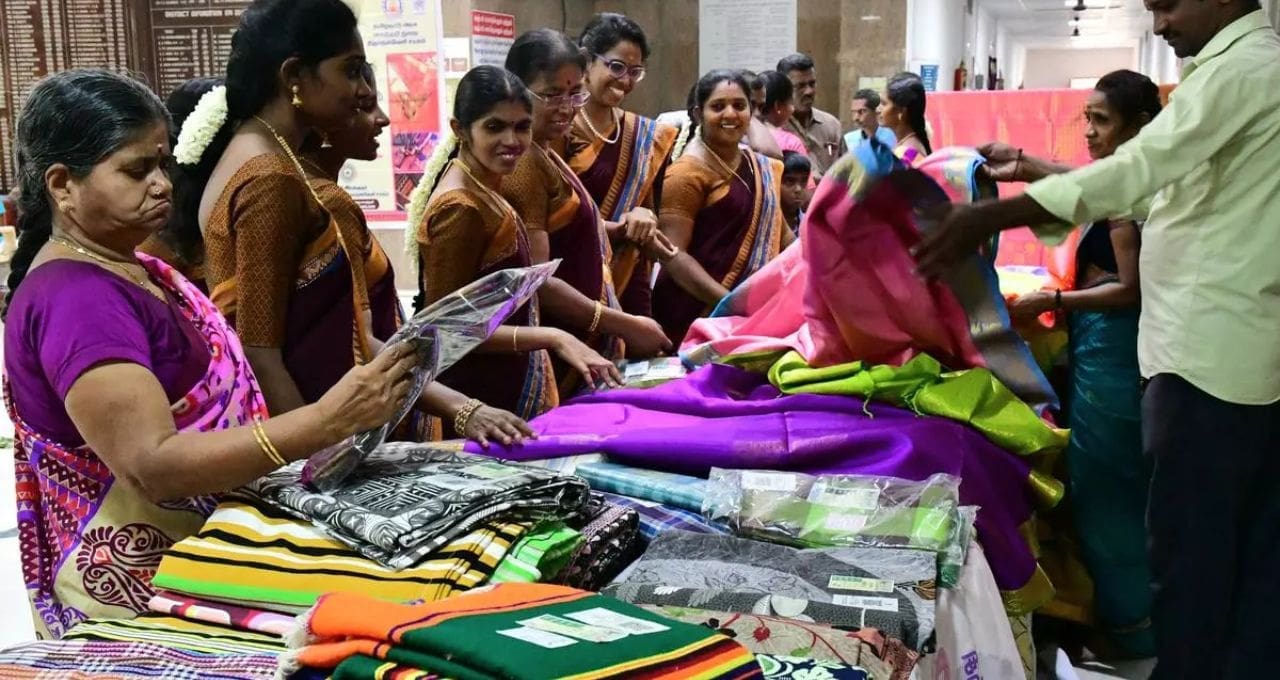The educated next generation’s unwillingness to enter the family business that has been passed down for centuries is a challenge for Tamil Nadu’s handloom industry. Lack of interest, low salary, and excellent chances in industries like IT and retail are some of the causes.
Making things out of cotton has serious problems. According to a couple of weavers in Salem who wished to remain anonymous, the remuneration is good, thus the situation is not awful in the production of silk sarees. The newly released Policy Note on Tamil Nadu Handloom and Textiles elaborately addressed the issue.
The Handloom Weavers Cooperative Societies in Tamil Nadu produced clothes worth $1,190 crore in 2022–2023 and sold handloom goods for $1,414 crore. Bedsheets, bedspreads, and home furnishings are produced at Erode, Karur, Salem, and Tiruchengode, some of the major handloom centres.The handloom industry has recently been struggling with an existential conundrum. Higher educated generations in the future are reluctant to pursue weaving as a career. The policy paper referred to the paradox that the higher class purchases handloom products as a statement of class yet the weaver receives low wages for value-added products.
Problems affecting the sector
Young people show little enthusiasm in pursuing weaving as a career. Thus, a paradigm shift and a redefinition of the department’s goals for the handlooms industry are essential.
For handlooms, there is also a lack of a distinct USP. in the new reality of the textile industry being taken over by automation and technology. The memo stated that the industry is suffering from the production of few different, low-quality items as well as resistance to change among current weavers to incorporate novelties in textile and fashion trends.
According to a weaver in Salem, whereas a person can make about 10,000 rupees a month working a cotton handloom, silk handlooms pay three times as much. He claimed that many young people have relocated to larger cities like Coimbatore and Chennai in pursuit of work in burgeoning industries like IT, startups, and even significant textile showrooms.
TN government initiative
The State Handloom Department intends to redefine its sectoral goals by putting an emphasis on premiumization, product innovation, and diversification of sources. Delivery of handloom goods and services to take advantage of market opportunities; better value realisation through effective branding; increased market access; upgrading of weavers’ skill sets; recruitment of the next generation; and raising of weavers’ and related workers’ pay rates.
The State government intends to run an entrepreneurial project to entice young people to pursue weaving as a career. 300 children will participate in the Weaver’s Induction and Entrepreneurship Programme, for which a budget of Rs. 1.40 crore has been set aside.
The young people would be approved for loans under the Center’s Mudra plan and inducted into a local weavers’ cooperative upon successful completion of their training, according to State Minister for Textiles and Handlooms R Gandhi recently in the Assembly.

